Sixty Students Participate in the 2009 Rochester Symposium for Undergraduate Physics Students (RSPS)
April 4, 2009 marked the day of the twenty-eighth Annual Rochester Symposium for Undergraduate Physics Students (RSPS), held this year at the U.S. Military Academy at West Point. Overall, sixty undergraduates from eight colleges and universities participated by either attending or speaking about their research.
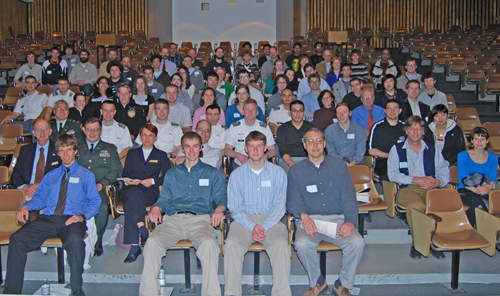
The northeast regional RSPS conference is typically held each year during the Spring semester. This year's participants represented the University of Rochester, Houghton College, Colgate College, West Point Military Academy, Siena College, Saint Peter's College, Adelphi University, and SUNY Oswego.
Five University of Rochester undergraduates gave 15-minute presentations:
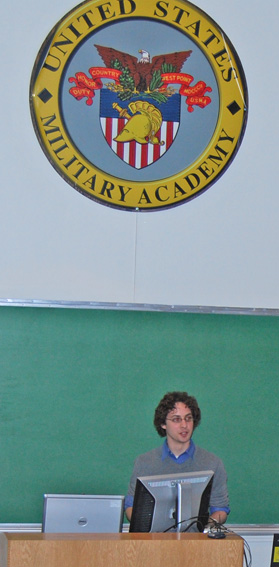
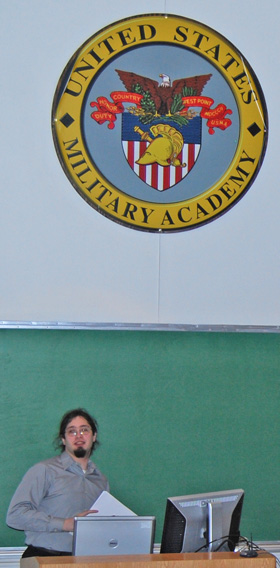
(Left) Timothy De Haas, "Preliminary Analysis of RR Lyrae Light Curves in the Globular Cluster M15." Advisor: Professor S. Kanbur of SUNY Oswego
(Right) Isaac Richter, "On the possible resonances of very high order modes in Cepheids." Advisor: Professor S. Kanbur of SUNY Oswego
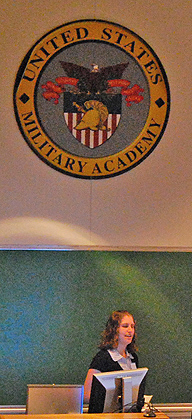
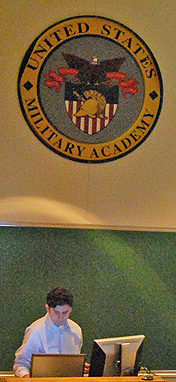
(Left) Valerie A. Rapson, "Analysis of an aerosol-based geo-engineering proposal." Advisor: Professor Robert S. Knox of the University of Rochester
(Right) Adi Robinson, "Modernizing the Mossbauer Experiment." Advisor: Professor Frank Wolfs of the University of Rochester
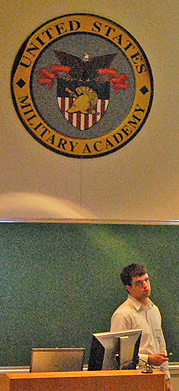
(Above) Dan Gresh, "Study on Noise Thresholds in CMS." Advisor: Professor Regina Demina of the University of Rochester
Three University of Rochester undergraduates participated in the poster session:
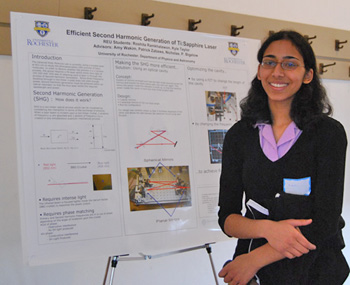
Roshita Ramkhalawor, "Efficient Second Harmonic Generation (SHG) of Ti:sapphire Laser using Non-Linear BBO Crystal." Advisor: Professor Nicholas Bigelow of the University of Rochester
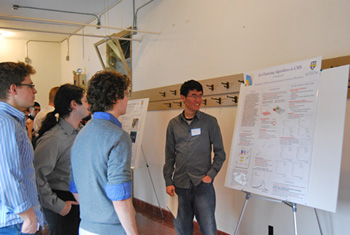 Zhen Qi, "Jet Clustering Algorithms in CMS." Advisor: Professor Regina Demina of the University of Rochester
Zhen Qi, "Jet Clustering Algorithms in CMS." Advisor: Professor Regina Demina of the University of Rochester
Sendawula Kajubi, "The Designing and Testing of Infrared Detector
Arrays." Advisor: Craig McMurty of the University of Rochester
Also attending was Sean Bentley, who received his PhD in Optics from the
University of Rochester in 2004 under the guidance of Professors Boyd
and Melissinos. Assistant Professor Bentley, shown below with Professor
Arie Bodek during the poster session, is now at Adelphi University.
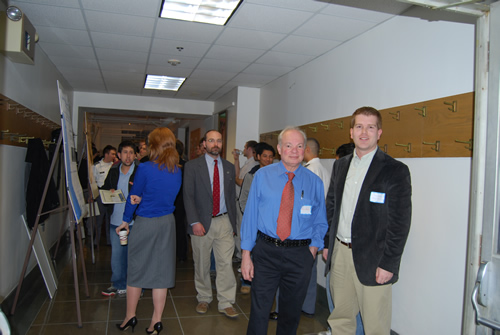
The Rochester undergraduates attending this year's RSPS conference slept in the barracks on Friday night. Midway through the conference on Saturday, several West Point cadets gave the visiting students a tour of the Military Academy, including the mess hall and the library.
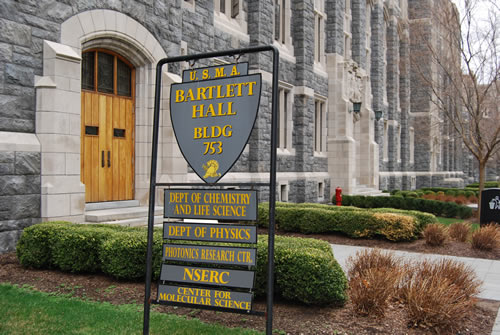
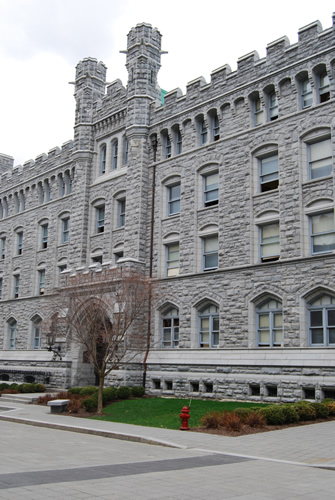
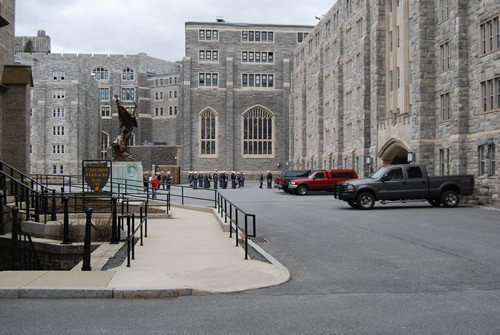
The first twenty-four RSPS conferences were hosted from 1981 through 2005 by the University of Rochester. In 2006, the twenty-fifth RSPS conference was held at Houghton College, New York. In 2007 and 2008, the conference returned to Rochester.
To see abstracts of this year's presentations, please click this link.
Special Note to Undergraduates: We encourage you to apply to the Research Experience for Undergraduates (REU) program here at the University of Rochester. Examples of recent accomplishments and awards won by Rochester REU students include:
- Stephen Thorndike, who worked with Professor Alice Quillen in the summer of 2002 and discovered a new planet
- Govind S. Krishnaswami, who won the 1999 APS Apker Award for the best undergraduate research in the USA in Physics, for his work with Professor Sarada Rajeev in theoretical particle physics
- Grant Tremblay, Matthew Barczys, and Kevin Flaherty, who each won the Astronomical Society of New York (ANSY) Undergraduate Student Prize for a distinguished research paper in Astronomy in 2000, 2005, and 2006, respectively
- Albert Torr-Jong Wang, who worked in condensed matter physics with Professor Steve Teitel and was one of three Apker Award Finalists in 2001
If you are involved in Physics, Astronomy, or Optics research projects, we strongly encourage you to present your findings at the next RSPS conference. We also urge you to follow up on your research with the
goal of giving a presentation at a regular APS meeting (which has a special session for undergraduate research). In addition, you should aim to publish your findings in a regular journal or in the APS Journal of Undergraduate Research.
